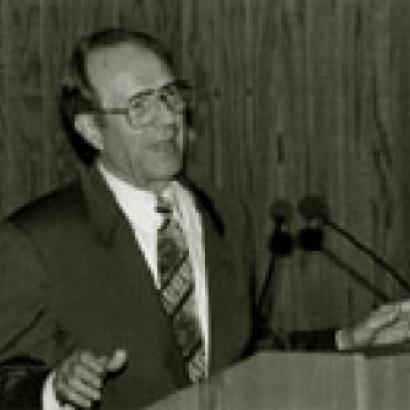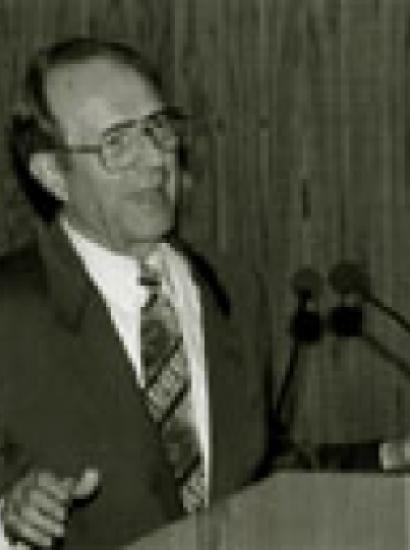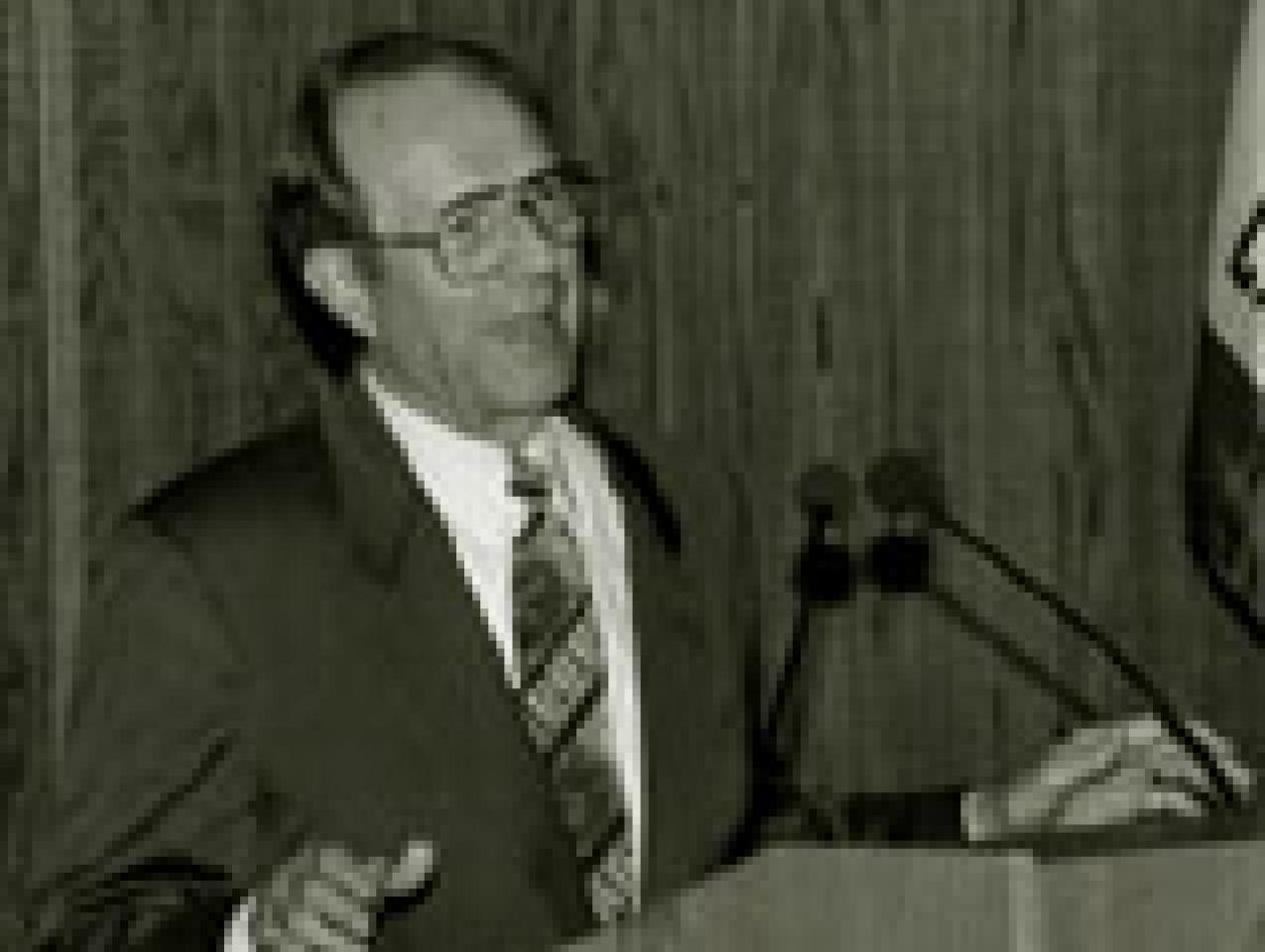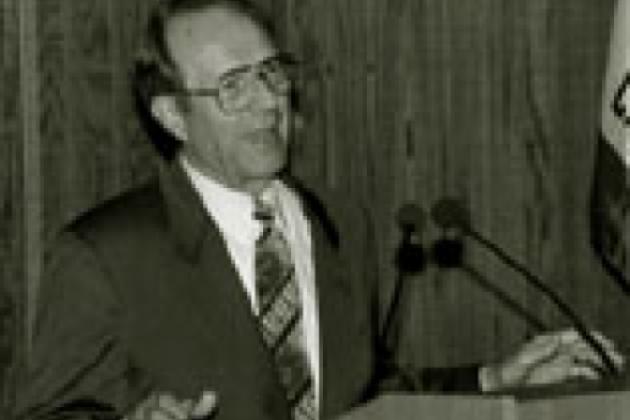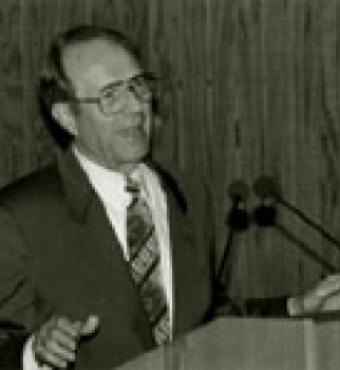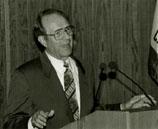- Contemporary
- International Affairs
- US Foreign Policy
- History
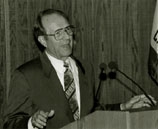
Why should we care about what transpires in Russia and the newly independent states? Some argue that we should concentrate on our own domestic problems and let Russia, Ukraine, and the other Eastern European nations go their own way.
I reject that view for both philosophical and historical reasons. The most compelling philosophical reason was offered by Christian theologian Reinhold Niebuhr, who wrote, "Man's capacity for good makes democracy possible. His capacity for evil makes democracy indispensable." The most compelling historical reason is seen in the fate of the Weimar Republic, brilliantly described by Stanford historian Gordon A. Craig. I quote from his book, Europe since 1815, about the interwar period in Germany.
While totalitarian regimes were consolidating their power in Russia and in Italy [after World War I], an experiment was being conducted in Germany to determine whether a democratic republic could be made to work in that country. After fifteen years of trial and crisis it failed, and the ultimate consequences of that failure were a second world war and the deaths of millions of men, women, and children.
If some benevolent spirit had granted the peoples of Germany and the neighboring European states even a fragmentary glimpse of what lay in store for them in the 1940s, it is impossible to believe that they would not have made every possible sacrifice to maintain the Weimar Republic against its enemies. But that kind of foresight is not given in this world, and the German republic always lacked friends and supporters when it needed them most.
We should never allow ourselves to believe that a failure of democracy in Russia would affect only Russians. Indeed, I believe that our long-term security depends on dealing, and dealing effectively, with the security problems facing not just Europe but the world, especially in light of the problems associated with the bold attempts of the Eastern European countries to restructure their political and economic systems. A key part of our security strategy is to do everything we reasonably can do to keep these problems from developing into security threats. We must seek a partnership in the spirit of George Marshall, who after the Second World War used the Marshall Plan to assist former allies and enemies alike. And we must do so in the name of preventive defense--the effort to create the conditions for peace and to minimize the risk of war.
The Partnership in Practice
One of the most dramatic examples of preventive defense is the Nunn-Lugar program, named after former Senator Sam Nunn and Senator Dick Lugar. Under the auspices of this program, we have spent almost $2 billion in defense funds to assist the nuclear states of the former Soviet Union in dismantling their Cold War legacy. To underscore the importance of this program, during a 1994 visit to Ukraine, I visited Pervomaysk, the crown jewel of intercontinental ballistic missile sites in the former Soviet Union. I was taken deep underground to a control center, where two officers simulated the launch of nuclear weapons. Never, never will I forget the experience of watching the officers rehearse the launching of some seven hundred nuclear weapons, all aimed at the United States. When I returned to Pervomaysk a year later, I witnessed a group of missiles being removed for destruction--a very satisfying experience. The Pervomaysk missile site is now a productive sunflower field.
Another example of the partnership between Russia and America: the Gore-Chernomyrdin commission, formed by Vice President Albert Gore and Prime Minister Viktor Chernomyrdin in 1993 as a vehicle for the United States to help Russia with economic restructuring. The Department of Defense participates by managing programs that help Russia convert defense facilities to the production of commercial products.
Perhaps the centerpiece of our preventive defense program is the Partnership for Peace, in which all sixteen North Atlantic Treaty Organization (NATO) nations conduct joint peacekeeping exercises with twenty-seven Eastern and Central European nations. Just last year I witnessed the first Partnership for Peace exercise ever held on the soil of the former Soviet Union. There they were, exercising together, soldiers from Russia and Ukraine, Belarus and Poland, Romania and Albania, all training with soldiers from Germany and the United States. They were bridging old Cold War chasms and building personal ties of cooperation, trust, and understanding.
The Test in Bosnia
I've mentioned programs by which we're attempting to build our partnership with Russia. Let me close with a word about the greatest test of that partnership that I myself witnessed as secretary of defense. That test was Bosnia.
The presidents of our two countries--Russia and the United States--recognized the importance of Russian participation in Bosnia. At their meeting at Hyde Park two years ago, they agreed to Russian participation in principle, but they were unable to reach an agreement in practice, so they remanded this problem to their defense ministers to resolve. (By the way, that's one of the reasons why it's better being president than secretary of defense--nobody remands problems to the president.)
When Russian defense minister Pavel Grachev and I first met in Washington, we were completely unsuccessful. The view of the United States was that NATO had to be in charge in Bosnia. The Russian view was that Russian troops could not be under NATO command. At one point, the Russian defense minister turned to me and said, "You have us by the throat." When the other person feels you have him by the throat--well, that's no way to conduct a partnership.
We met again at Fort Riley, Kansas, in conjunction with a U.S. and Russian joint peacekeeping exercise. This exercise reminded us that our two military forces could indeed work together. Then we met yet again at Whiteman Air Force Base, Missouri, where we participated in the destruction of a Minuteman silo that was the companion piece to the destruction of nuclear weapons that I witnessed in Pervomaysk. And this reminded us of the dangers of failing to work together.
We agreed to establish a joint team at the Supreme Headquarters of Allied Forces in Europe, where we got down to planning details of the Bosnia operation. Our final meeting took place in Brussels, where a NATO commander and a Russian commander presented their proposals to the Russian defense minister and myself. My Russian counterpart and I both said da, and we authorized a plan for an operation in Bosnia in which a Russian brigade would serve with an American division. Today, the Russian brigade is still on the ground in Bosnia. This proof that Russia and NATO can indeed work together as partners will have effects for years to come.








